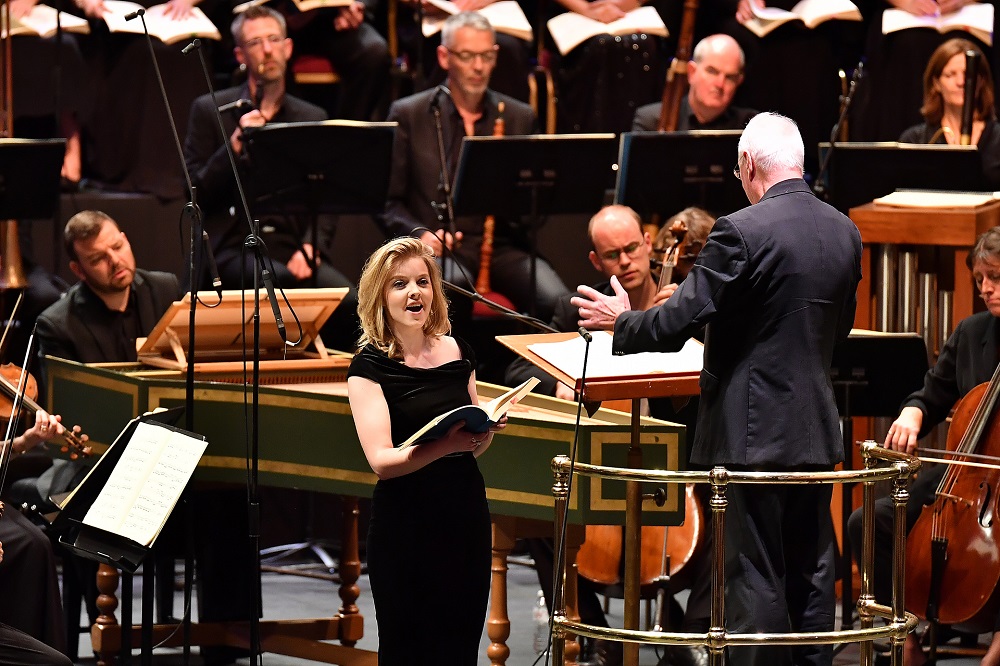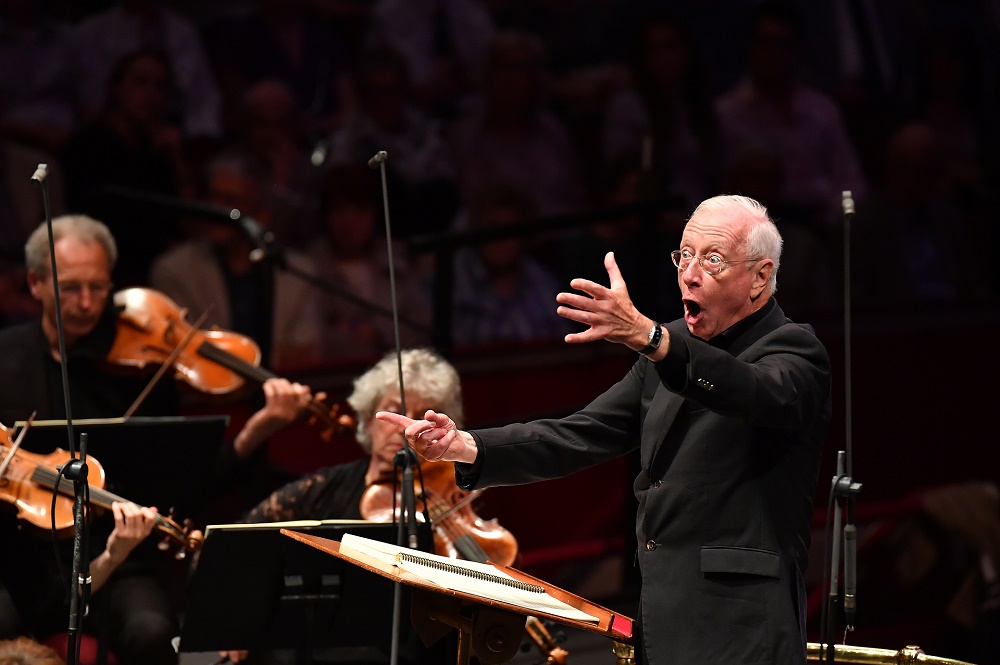How do you make a venerable warhorse frisk like a coltish show-pony? Hire William Christie as the trainer. In a performance of scintillating drama and crystal-clear definition, the past master of Baroque revival and re-invention coaxed the Orchestra of the Age of Enlightenment and its thoroughbred choir across all the tricky fences on Handel’s long and winding course. At the end of Israel in Egypt, with the Egyptians vanquished and the Israelites freed, the voice of Miriam the prophetess – one of the two soprano solo parts – exhorts her people to “Sing ye to the Lord, for he has triumphed greatly”, before singers and instruments take up the refrain in great surging and overlapping waves of sound.
The Proms has announced a commitment to schedule more of Handel’s oratorios. Commendable, and practicable, given that the unforgiving Royal Albert Hall can grudgingly reward a first-rate choir. Still, Israel in Egypt might have proved a big ask as an inaugural shop-window. Handel wrote it in 1739, a couple of years before Messiah, as fashionable London wearied of Italian opera. Like an elaborate Biblical wedding-dress, it offers something old, something new, something borrowed – and something blue.
Always a scholar but never a pedant, Christie – the American-born French founder of Les Arts Florissants (pictured below) – restored the purely choral prelude but never let it plod. From the first ominous rumble of timpani, his driving energy wired singers and players with an electric sense of menace, of anger, of hope. In this solo-free section, the crackle of dialogue between the choral parts avoids any risk of monotony – but only in hands as skilful as Christie’s. From the 50-strong ranks of the OAE voices he conjured a dynamic range that completely satisfied the need for contrast and variation. When the exiled sons of Israel mourn and “all the people sigh”, an infestation of desert snakes suddenly slithered through the hall. The mighty fell in a tumbling, apocalyptic vocal blast and when the Lord’s judgement becomes “a robe and a diadem”, the crescendo shone like ancient bling. Whatever the volume, the OAE choir’s diction and balance never wavered. Old-world, town-hall Handel, with textures as thick and grimy as the sooty northern air outside, had a power and magic all its own, but the athleticism and precision of Christie’s approach banished any nostalgia.
However, the choir – figuratively, if not literally – has in Israel in Egypt to occupy centre-stage. Yes, they rose splendidly to Handel’s famous biomorphic mimicry of the plagues of Egypt – the frogs, the flies, locusts, the hailstones. When “there came all manner of flies, and there came lice in all their quarters”, the flesh really did begin to creep. These passages can sound like faintly ludicrous party-tricks, but here Christie’s drive and focus injected a true frisson of disaster-movie dread. Counter-tenor Christopher Lowery’s air added with relish to the creepy-crawly nightmare as “blotches and blains broke forth on man and beast”. I thought here not of the long-forgotten Italian works that Handel may have intermittently parodied, but Bernard Herrmann’s skin-prickling scores for Alfred Hitchcock. Meanwhile the orchestra, with oboes and trumpets gloriously eloquent, kept up their always-engaging dialogue with the voices. By the time that the basses (Callum Thorpe and Dingle Yandell) bragged almost cockily that “The Lord is a man of war”, the David Attenborough beasties thad retired and Handel’s wave of triumph began to ripple through the hall.
This is the sort of Handelian moment when a sort of cup-final pomposity can tempt chorus and conductors; but Christie kept, as it were, our ears on their toes. He extracted every grain of theatre from the vocal lines, and when the basses of the chorus dived down into “the heart of the sea”, he took us there in a state-of-the-art submarine. Even when the chorus exulted that “The horse and his rider he hath thrown into the sea”, the swirling majesty of the interwoven lines never became an immersive blur. His rendering never lacked weight, and it never lost finesse. With Christie and his battle-fit forces, we crossed the Red Sea with a spring in our step, in a state of alert exhilaration that never sank into soupy self-satisfaction. This rider remains supremely in the saddle.














Add comment